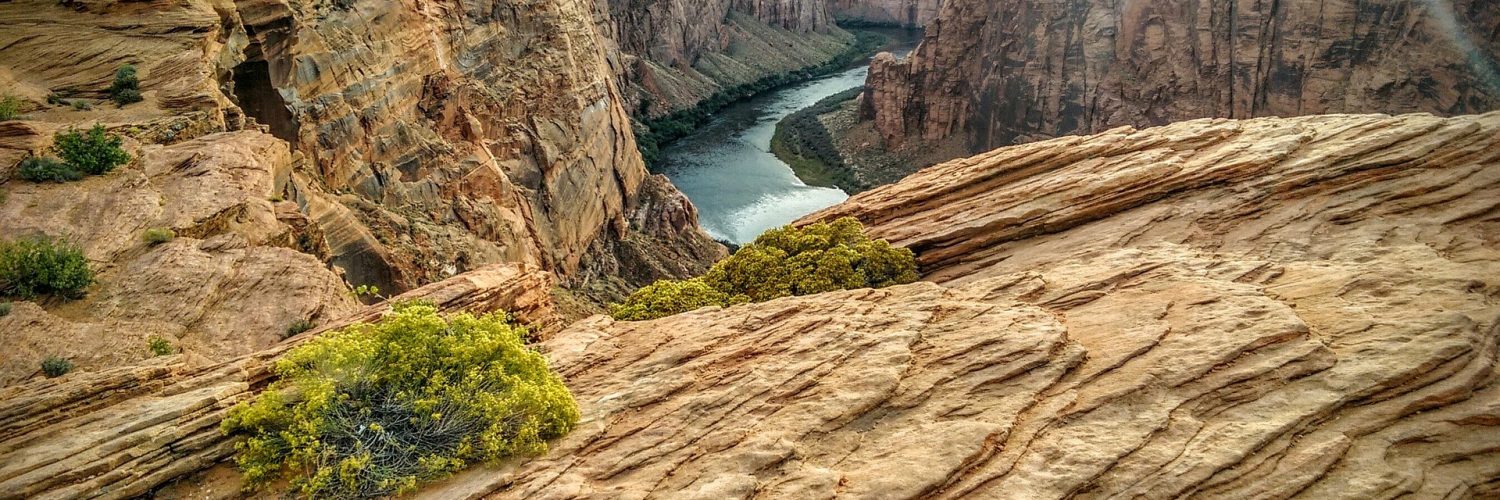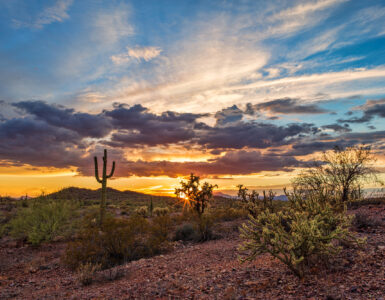Gov. Doug Ducey issued a terse reprimand to water stakeholders who failed to meet yet another deadline to finalize Arizona’s critical role in a multi-state pact to deal with water shortages that are expected as soon as 2020. Now, the federal Bureau of Reclamation is speaking out, telling water stakeholders at the Colorado River Water Users Association annual meeting that if Arizona and California do not act by January 31st, the Bureau will step in.
“While we can’t celebrate completion of DCP today, we are closer than we’ve ever been,” Brenda Burman, Commissioner of the Bureau of Reclamation said. “But only ‘done’ will protect the Basin.”
According to Burman the Upper Basin states are ready; Arizona and California are not. But the Bureau will ensure Lake Mead is protected with or without a Drought Contingency Plan.
If Arizona and California do not act, on January 31st, the Bureau will publish a notice in the register and ask the seven states for feedback to impose protections.
Governor Ducey agrees the state must act. A plan currently favored by Ducey and a majority of water interests in the state must move forward or it could put the state’s future at risk, the Governor told a crowd at the Business H20: Water Summit in Phoenix this week that was hosted by the United States and Arizona Chambers of Commerce.
“Let me repeat this. I will reject any plan or policy that comes across my desk that fails to adhere to the principles I’ve outlined. It’s simple,” Ducey told about 200 water leaders and experts at the summit that brought water leaders from Arizona and Israel together to promote solutions for averting a global water crisis.
While a good plan is on the books, it is being held up by a handful of low priority water users who are pushing “more simplistic plans,” Ducey said. Those plans “undermine” the goal of the DCP, which is to stabilize and protect the integrity of Lake Mead.
“Historically, issues surrounding the Colorado River were resolved through conflict and litigation,” Ducey said. “We’re attempting to do something different today and that’s work collaboratively with those who share the river’s resources, the six other basin states and our neighbor to the south, our largest trading partner, Mexico.”
At the summit, Ducey said he will reject any proposal that does not adhere to three principals: protecting water levels at Lake Mead, transitioning Arizona to a drier future and balancing the interests of all water users in the state.
Arizona water leaders were supposed to have a final plan to present at the annual meeting of the Colorado River Water Users Association in Las Vegas this week. It didn’t happen.
Holding up the deal are final details over cuts and mitigation to low priority users including Pinal County farmers.
Ducey stated that he fully supports a plan presented to stakeholders last month that spells out how water cuts will occur during a shortage. The plan contains measures to address the impact to the Pinal County agricultural industry. He also has promised to find an additional $30 million in state funding to pay for system conservation efforts.
Mexico and all the states involved in the DCP except Arizona and California have their plans in place. Arizona, which is a junior water rights state – meaning it receives more severe cuts when a water shortage occurs – has been struggling for more than two years to come to agreement on the DCP.
Meanwhile, a 19-year drought continues to take its toll on the mighty Colorado. The river currently feeds about 40 million people in seven states, and provides about 40 percent of Arizona’s entire water supply.
Despite his threat, Ducey said he believes a resolution is “very close.”
If everyone can agree, the plan goes to the state legislature for ratification. Then the Director of the AZ Department of Water Resources must approve it before it goes to the federal government and Congress for final approval.
“We really have no time to spare here. The time to protect the integrity of the Colorado River water supplies is right now, implementing this interstate DCP within Arizona will require sacrifice across multiple sectors,” he said.
That is little solace for Paul Orme, a water rights attorney who is fighting to preserve a significant portion of the agricultural economy in Pinal County.
“Anyway you slice it, this is a very difficult future for Pinal County agriculture,” Orme said. “Whether we remain under the 2007 guidelines or we move forward under the DCP, we are facing very significant reductions in our surface water and supply.”
The Colorado River Water Users Association adopted a resolution via voice vote at the annual meeting supporting a Drought Contingency Plan.
















Add comment